21 start with C start with C
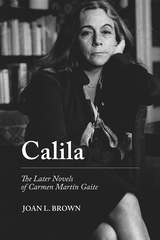
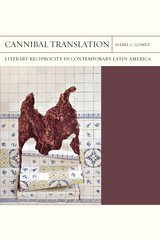
A bold comparative study illustrating the creative potential of translations that embrace mutuality and resist assimilation
Cannibal translators digest, recombine, transform, and trouble their source materials. Isabel C. Gómez makes the case for this model of literary production by excavating a network of translation projects in Latin America that includes canonical writers of the twentieth century, such as Haroldo and Augusto de Campos, Rosario Castellanos, Clarice Lispector, José Emilio Pacheco, Octavio Paz, and Ángel Rama. Building on the avant-garde reclaiming of cannibalism as an Indigenous practice meant to honorably incorporate the other into the self, these authors took up Brazilian theories of translation in Spanish to fashion a distinctly Latin American literary exchange, one that rejected normative and Anglocentric approaches to translation and developed collaborative techniques to bring about a new understanding of world literature.
By shedding new light on the political and aesthetic pathways of translation movements beyond the Global North, Gómez offers an alternative conception of the theoretical and ethical challenges posed by this artistic practice. Cannibal Translation: Literary Reciprocity in Contemporary Latin America mobilizes a capacious archive of personal letters, publishers’ records, newspapers, and new media to illuminate inventive strategies of collectivity and process, such as untranslation, transcreation, intersectional autobiographical translation, and transpeaking. The book invites readers to find fresh meaning in other translational histories and question the practices that mediate literary circulation.

Author Karina Alma offers a systemic method and artistic mode for unpacking social and political memory formation that resists dominant histories. Central American Counterpoetics responds to political repression through acts of creativity that prioritize the well-being of anticolonial communities. Building on Toni Morrison’s theory of rememory, the volume examines the concept as an embodied experience of a sensory place and time lived in the here and now. By employing primary sources of image and word, interviews of creatives, and a critical self-reflection as a Salvadoran immigrant woman in academia, Alma’s research breaks ground in subject matter and methods by considering cultural and historical ties across countries, regions, and traditions. The diverse creatives included explore critical perspectives on topics such as immigration, forced assimilation, maternal love, gender violence, community arts, and decolonization.

In this luminous work, Claudio Guillen meditates on the elusive field of comparative literature and its vicissitudes since the early nineteenth century. These pages ring with the authority of a scholar who has keenly observed his discipline during recent decades, when the predominant interest in contrasts, comparisons, influences, and interrelationships gave way to what Guillen terms "the systematic study of supranational assemblages."
This book is a powerful call to abandon the ethnocentric view of literature and to face the tension between the local and the universal. Guillen shows how literature catapults us into supranationality. Poetry provokes and inspires his reflections. Aiming to write a book that approaches the nations of the world, "drawing close to them, listening to them, yielding their best voices, reproducing whenever possible their exact words," Guillen presents the work of Cervantes, Borges, Dante, Garcia Marquez, Neruda, Dario, Ortega, Whitman, T. S. Eliot, Czeslaw Milosz, Alberti, Lorca, Jorge Guillen, Rilke, Milton, Beckett, Stefan George, and the great rang poets, as well as Nahuatl literature and Quechua elegies. As he proceeds, the essential components of literary communication unfold before us—its channels, forms, themes, genres, and use of literary history.
Not since Northrop Frye's Anatomy of Criticism has any great critic provided us with so commodious a framework for understanding literature in all its variety. In Guillen's hands, Babel becomes not chaos but a beautifully diverse unity, transcending the boundaries of the individual and the nation. A brilliant exploration of a field, The Challenge of Comparative Literature will be required reading for all who seek a renewed view of literature and its voices throughout the world.
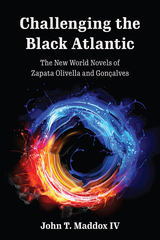
Published by Bucknell University Press. Distributed worldwide by Rutgers University Press.

The political novel, which enjoyed a steep yet short rise to international renown between the 1830s and the 1910s, is primarily concerned with the nation’s political future. It offers a characterization of the present, a blueprint of the future, and the image of the heroes needed to get there. With the standing it gained during its meteoric rise, the political novel helped elevate the novel altogether to become the leading literary genre of the twentieth century worldwide.
Focusing on its adaptation in the Chinese context, Catherine Vance Yeh traces the genre from Disraeli’s England through Europe and the United States to East Asia. Her study goes beyond comparative approaches and nation-state- and language-centered histories of literature to examine the intrinsic connections among literary works. Through detailed studies, especially of the Chinese exemplars, Yeh explores the tensions characteristic of transcultural processes: the dynamics through which a particular, and seemingly local, literary genre goes global; the ways in which such a globalized literary genre maintains its core features while assuming local identity and interacting with local audiences and political authorities; and the relationship between the politics of form and the role of politics in literary innovation.
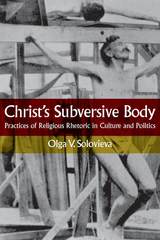
Solovieva’s survey includes the iconoclastic polemics of Epiphanius at the moment of struggles for supremacy between the Roman state and the Christian church, the mystical theologico-political alchemy of an anonymous treatise circulated at the Council of Constance, Lavater’s counter-Enlightenment visions of the afterlife expressd through physiognomy, Dostoevsky’s refashioning of ethical communities, Pier Paolo Pasolini’s attempts to provoke the “scandal” of Jesus’s mission once more in the modern world, and the elaboration of a political theology subordinating democratic dissent to the higher unity of a corporately conceived “unitary executive” in early twenty-first-century America.
Solovieva presents her findings not as an entry into theological or Christological debates but rather as a study in comparative discourse analysis. She demonstrates how these uses of Christ’s body are triggered by moments of epistemological, political, and representational crisis in the history of Western civilization.

Cien años de identidad: Introducción a la literatura latinoamericana del siglo XX [One Hundred Years of Identity: Introduction to Twentieth-Century Latin American Literature] is an advanced Spanish textbook and Latin American literature anthology, guiding students through the critical analysis of fourteen literary and filmic texts published between 1889 and 1995, including works from Jorge Luis Borges, Isabel Allende, and Gabriel García Márquez that represent some of the seminal works of Latin America. The textbook is designed to introduce students to the richness of twentieth-century Latin American literature and culture while building their skills in textual analysis through an examination of the theme of identity. The featured texts examine the complex and multifaceted topic of identity as the authors and protagonists struggle to understand themselves, determine their relationship to the world and others, and give meaning and significance to their existence. The textbook guides students step-by-step through critical analysis by presenting a range of tools and progressing from simple to more complex exercises and activities throughout the book. It is divided into four units based on various types of identity formation: (1) racial, ethnic, gender, and class identity; (2) existential(ist) identity; (3) temporal and spatial identity; (4) political and sexual identity. Serving as both a Latin American literature anthology and an upper-level Spanish textbook, Cien años de identidad aims to hone reading and interpretive strategies while also improving Spanish vocabulary and comprehension, oral and written communication, and cultural competency.
Features:
•Complete unabridged works from the following authors: Isabel Allende, Jorge Luis Borges, Rosario Castellanos, Julio Cortázar, Rubén Darío, Carlos Fuentes, Gabriel García Márquez, José Martí, Judith Ortiz Cofer, and Sergio Vodanovic•Complete pedagogy included for the novel El beso de la mujer araña by Manuel Puig and the film Fresa y chocolate by Tomás Gutiérrez Alea and Juan Carlos Tabío, although these two works are not anthologized in the textbook•Additional cultural contexts and author biographies for each text, as well as appropriate glosses and numbered lines for easy reference in class discussions•Four end-of-unit chapters focused on comparative literature strategies that are designed to coach students on how to compare authors and texts across common themes and further improve critical analysis strategies•Seventeen post-reading quizzes or homework assignments as well as a final examination, available to instructors only through the publisher's website
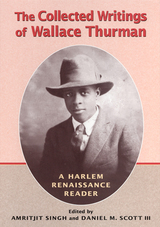
This book is the definitive collection of the writings of Wallace Thurman (1902-1934), providing a comprehensive anthology of both the published and unpublished works of this bohemian, bisexual writer. Widely regarded as the enfant terrible of the Harlem Renaissance scene, Thurman was a leader among a group of young artists and intellectuals that included, among others, Langston Hughes, Zora Neale Hurston, Richard Bruce Nugent, Gwendolyn Bennett, and Aaron Douglas. Through the publication of magazines such as FIRE!! and Harlem: A Forum of Negro Life, Thurman tried to organize the opposition of the younger generation against the programmatic and promotional ideologies of the older generation of black leaders and intellectuals such as W.E.B. Du Bois and Benjamin Brawley. Thurman also left a permanent mark on the period through his prolific work as a novelist, playwright, short story writer, and literary critic, as well as by claiming for himself a voice as a public intellectual.
The Collected Writings of Wallace Thurman is divided into eight sections to highlight the variety of genres and styles Thurman practiced as he courageously pursued controversial subjects throughout his short and brilliant career. It includes Essays on Harlem, Social Essays and Journalism, Correspondence, Literary Essays and Reviews, Poetry and Short Fiction, Plays, and Excerpts from Novel.
Filling an important gap in Harlem Renaissance literature, this collection brings together all of Thurman’s essays, nearly all of his letters to major black and white figures of the 1920s, and three previously unpublished major works. These books are Aunt Hagar’s Children, which is a collection of essays and two full-length plays, Harlem, and Jeremiah the Magnificent. The introduction to the volume, along with the carefully researched introductory notes to each of the eight sections, provides a challenging new reevaluation of Thurman and the Harlem Renaissance for both the general reader and scholar.
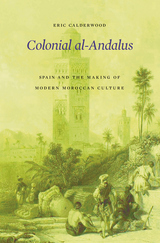
Through state-backed Catholicism, monolingualism, militarism, and dictatorship, Spain’s fascists earned their reputation for intolerance. It may therefore come as a surprise that 80,000 Moroccans fought at General Franco’s side in the 1930s. What brought these strange bedfellows together, Eric Calderwood argues, was a highly effective propaganda weapon: the legacy of medieval Muslim Iberia, known as al-Andalus. This legacy served to justify Spain’s colonization of Morocco and also to define the Moroccan national culture that supplanted colonial rule.
Writers of many political stripes have celebrated convivencia, the fabled “coexistence” of Christians, Muslims, and Jews in medieval Iberia. According to this widely-held view, modern Spain and Morocco are joined through their shared Andalusi past. Colonial al-Andalus traces this supposedly timeless narrative to the mid-1800s, when Spanish politicians and intellectuals first used it to press for Morocco’s colonization. Franco later harnessed convivencia to the benefit of Spain’s colonial program in Morocco. This shift precipitated an eloquent historical irony. As Moroccans embraced the Spanish insistence on Morocco’s Andalusi heritage, a Spanish idea about Morocco gradually became a Moroccan idea about Morocco.
Drawing on a rich archive of Spanish, Arabic, French, and Catalan sources—including literature, historiography, journalism, political speeches, schoolbooks, tourist brochures, and visual arts—Calderwood reconstructs the varied political career of convivencia and al-Andalus, showing how shared pasts become raw material for divergent contemporary ideologies, including Spanish fascism and Moroccan nationalism. Colonial al-Andalus exposes the limits of simplistic oppositions between European and Arab, Christian and Muslim, that shape current debates about European colonialism.
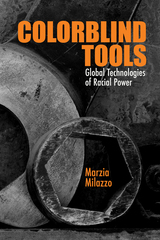
Winner of the 2023 Association for Ethnic Studies Outstanding Book Award
A study of anti-Blackness and white supremacy across four continents demonstrates that colorblindness is neither new nor a subtype of racist ideology, but a constitutive technology of racism
In Colorblind Tools, Marzia Milazzo offers a transnational account of anti-Blackness and white supremacy that pushes against the dominant emphasis on historical change pervading current racial theory. This emphasis on change, she contends, misses critical lessons from the past.
Bringing together a capacious archive of texts on race produced in Brazil, Cuba, Mexico, Panama, the United States, and South Africa from multiple disciplines and genres, Milazzo uncovers transnational continuities in structural racism and white supremacist discourse from the inception of colonial modernity to the present. In the process, she traces the global workings of what she calls colorblind tools: technologies and strategies that at once camouflage and reproduce white domination. Whether examining Rijno van der Riet’s defense of slavery in the Cape Colony, discourses of racial mixture in Latin American eugenics and their reverberations in contemporary scholarship, the pitfalls of white “antiracism,” or Chicana indigenist aesthetics, Milazzo illustrates how white people collectively disavow racism to maintain power across national boundaries, and how anti-Black and colonial logics can be reproduced even in some decolonial literatures. Milazzo’s groundbreaking study proves that colorblindness is not new, nor is it a subtype of racist ideology or a hallmark of our era. It is a constitutive technology of racism—a tool the master cannot do without.
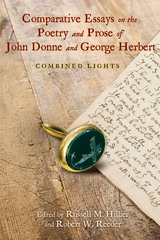

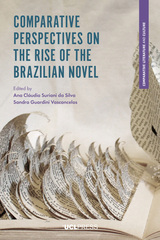
Comparative Perspectives on the Rise of the Brazilian Novel presents a framework of comparative literature based on a systemic and empirical approach to the study of the novel and applies that framework to the analysis of key nineteenth-century Brazilian novels. The works under examination were, therefore, published during the period in which the forms and procedures of the novel were acclimatized as the genre established and consolidated itself in Brazil.
The 15 original essays by experienced and early career scholars explore the links between themes, narrative paradigms, and techniques of Brazilian, European and North American novels and the development of the Brazilian novel. The European and North American novels cover a wide range of literary traditions and periods and are in conversation with the different novelistic trends that characterize the rise of the genre in Brazil. Chapters reflect on both canonical and lesser-known Brazilian works from a comparatist perspective.
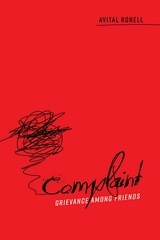
Avital Ronell considers how literature and philosophy treat bellyachers, wailers, and grumps—and the complaints they lavish on the rest of us. Combining her trademark jazzy panache with a fearless range of readings, Ronell opens a dialogue with readers that discusses thinkers with whom she has directly engaged. Beginning with Hamlet, and with a candid awareness of her own experiences, Ronell proceeds to show how complaining is aggravated, distracted, stifled, and transformed. She moves on to the exemplary complaints of Friedrich Nietzsche, Hannah Arendt, and Barbara Johnson and examines the complaint-riven history of deconstruction.
Infused with the author’s trademark wit, Complaint takes friends, colleagues, and all of us on a courageous philosophical journey.

In the middle of the fifteenth century, ominous portents like columns of fire and dense fog were seen above the skies of Constantinople as the Byzantine capital fell under siege by the Ottomans. Allegedly, similar signs appeared a few decades later and seven thousand miles away, forecasting the fall of the Mexica capital of Tenochtitlan—Tlatelolco to the Spanish and their indigenous allies. After both cities had fallen, some Greeks and Mexica turned to poetry and song to express their anguish at the birth of what has come to be called the “modern” era.
This study probes issues of collective memory and cultural trauma in three sorrowful poems, the “Lament for Constantinople,” the “Huexotzinca Piece,” and the “Tlaxcala Piece.” Composed by anonymous authors soon after the conquest of the two cities, these texts describe the fall of an empire as a fissure in the social fabric and an open wound on the body politic. They are the workings of creators who draw on tradition and historical particulars to articulate, in a familiar language, the trauma of the conquered.
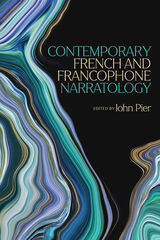
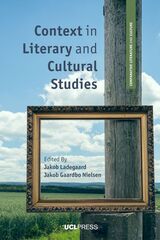
Introducing readers to new developments in literary and cultural theory, Context in Literary and Cultural Studies connects all disciplines related to these areas to provide an interdisciplinary overview of the challenges different scholarly fields today meet in their studies of artworks in context. Spanning a number of countries and covering subjects from nineteenth-century novels to rave culture, the chapters together constitute an informed, diverse and wide-ranging discussion. The volume is written for scholarly readers at all levels in the fields of literary studies, comparative literature, cultural studies, art history, film, theater studies, and digital humanities.
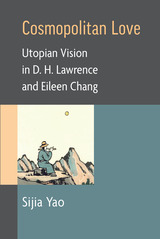
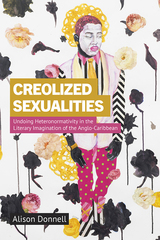
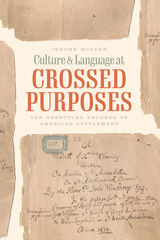
Classic American literature, Jerome McGann argues, is haunted by the betrayal of seventeenth- and eighteenth-century Indian treaties—“a stunned memory preserved in the negative spaces of the treaty records.” A noted scholar of the “textual conditions” of literature, McGann investigates canonical works from the colonial period, including the Arbella sermon and key writings of William Bradford, John Winthrop, Anne Bradstreet, Cotton Mather’s Magnalia, Benjamin Franklin’s celebrated treaty folios and Autobiography, and Thomas Jefferson’s Notes on the State of Virginia. These are highly practical, purpose-driven works—the record of Enlightenment dreams put to the severe test of dangerous conditions. McGann suggests that the treaty-makers never doubted the unsettled character of what they were prosecuting, and a similar conflicted ethos pervades these works. Like the treaty records, they deliberately test themselves against stringent measures of truth and accomplishment and show a distinctive consciousness of their limits and failures. McGann’s book is ultimately a reminder of the public importance of truth and memory—the vocational commitments of humanist scholars and educators.
READERS
Browse our collection.
PUBLISHERS
See BiblioVault's publisher services.
STUDENT SERVICES
Files for college accessibility offices.
UChicago Accessibility Resources
home | accessibility | search | about | contact us
BiblioVault ® 2001 - 2024
The University of Chicago Press









